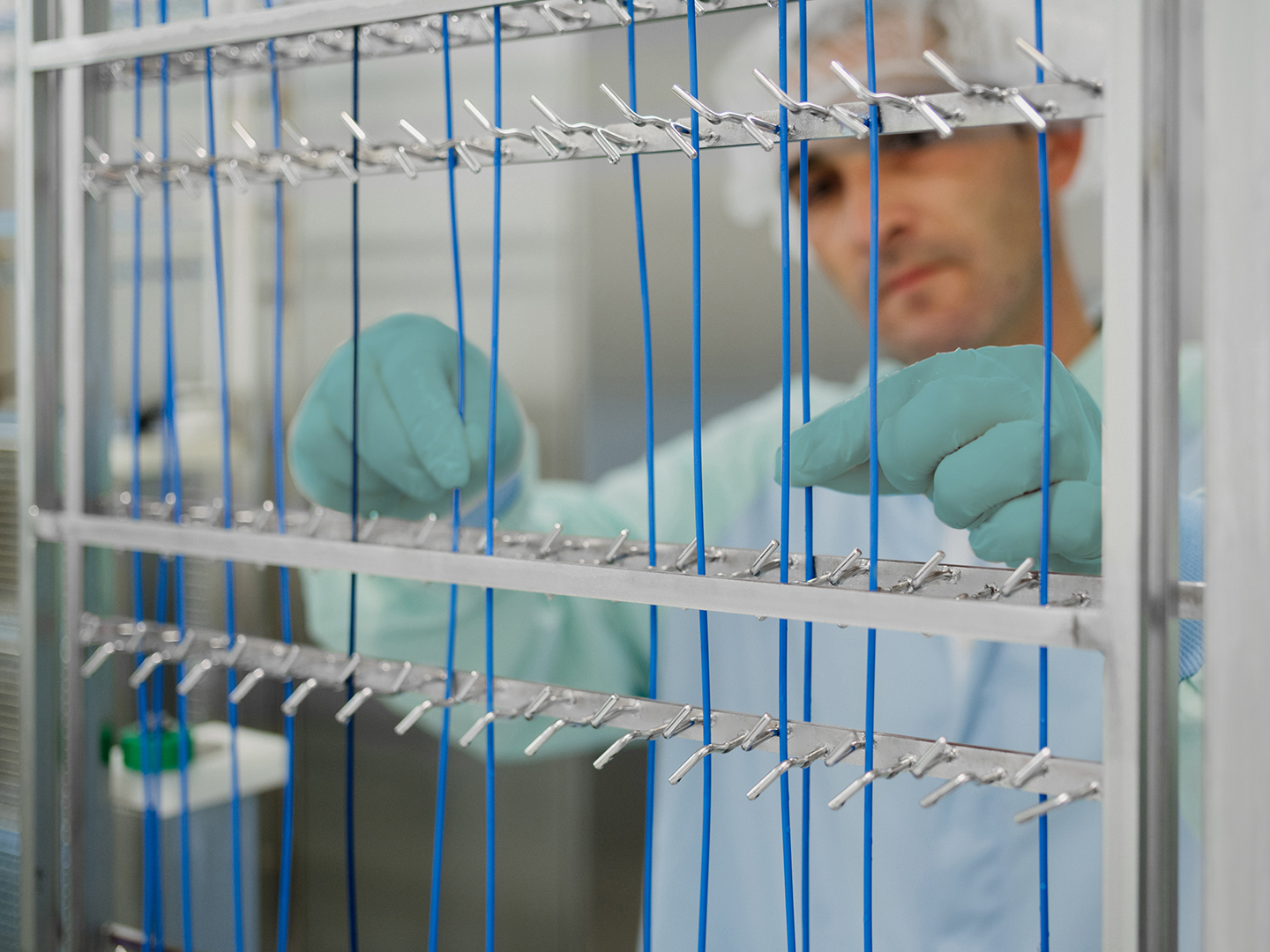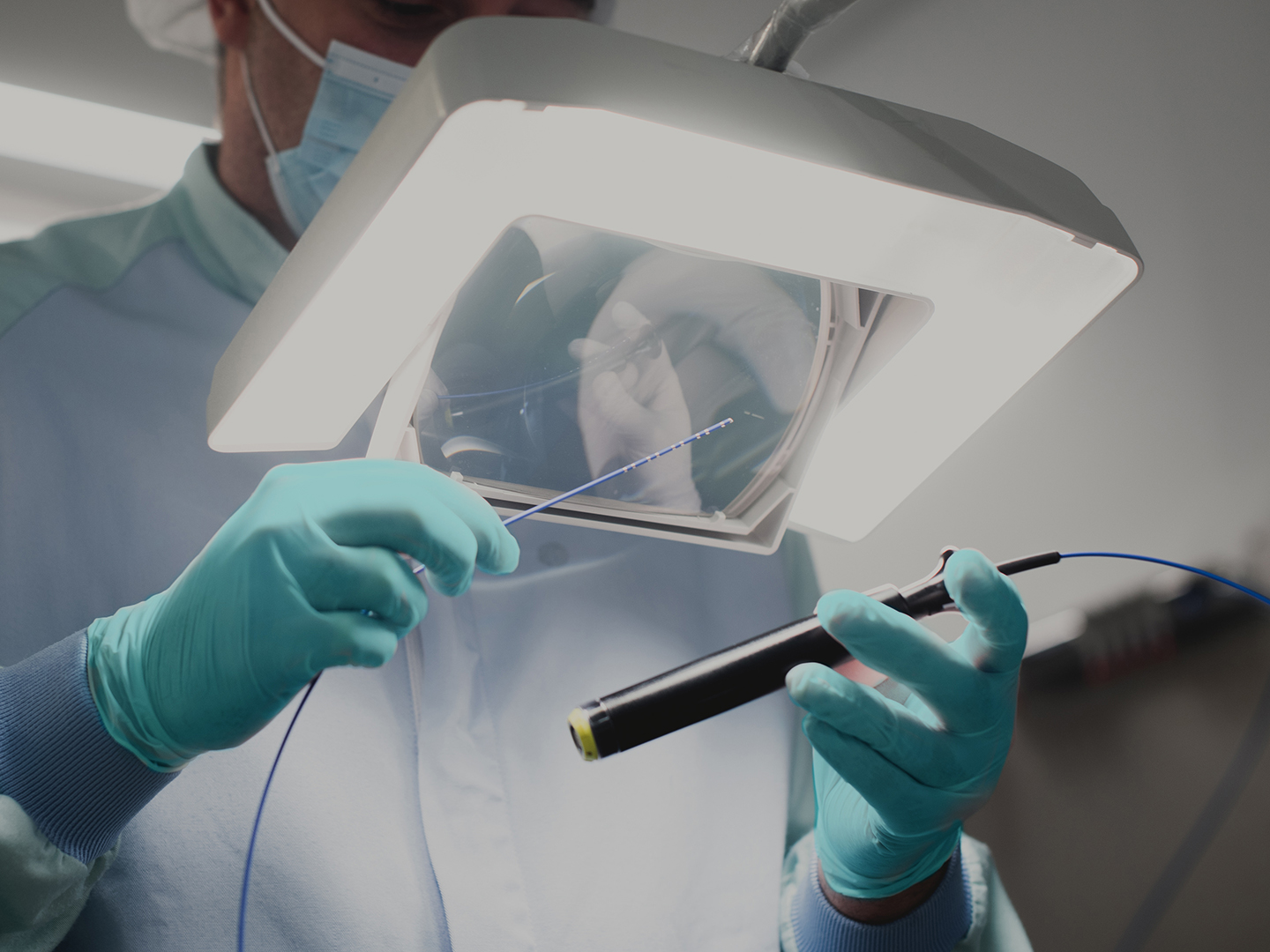Cicular Economy
New study proves: Climate and resources can be protected with remanufactured medical devices
Plastics offer very good properties, are often durable materials and are used in all kinds of areas - from packaging to the construction industry to medicine. If plastic products are recycled for as long as possible, resource consumption is reduced and the climate is protected. Many medical products that have only been approved by the manufacturer for a single use also contain plastics, for example electrophysiology catheters (heart catheters). A research team from the Fraunhofer Institute for Environmental, Safety and Energy Technology UMSICHT was commissioned by the Medical Remanufacturing company Vanguard AG to investigate the positive environmental impact of medical remanufacturing using certified processes rather than disposing of these products. At the AMDR (Association of Medical Device Reprocessors) round table on March 11, co-author Anna Schulte will explain the details of the recently published study.


A circular economy should make it possible to extract fewer fossil resources, minimize waste products and emissions, design products intelligently for their recycling and thus reduce end-of-life losses. In order to show which environmental impacts the manufacture of products and materials have, Fraunhofer UMSICHT prepares life cycle assessments for customers from different industries. In the recently published study commissioned by the Vanguard AG, the research team compared the new production of an electrophysiology catheter (cardiac catheter) with a remanufactured catheter - by means of so-called medical remanufacturing – especially with regard to their impact on global warming as well as their resource consumption. The result: Medical Remanufacturing reduces the CO2 footprint by over 50 percent and resource consumption by over 28 percent. The study was published in the scientific journal "Sustainability".
Positive effects increase with number of reprocessing cycles
"Our study has shown that medical remanufacturing of single-use medical devices leads to significant savings in both categories - carbon footprint and resource consumption - compared to the production of new cardiac catheters. IIt is a great example of how the transformation towards a circular economy can succeed," explains Anna Schulte, first author of the Fraunhofer UMSICHT study. The study further shows that the positive effects increase with the number of remanufacturing cycles. In a modeling over several life cycles, Fraunhofer UMSICHT was able to estimate that approximately 450 t CO2 equivalent could be saved annually in Germany.[1]
Recycling and remanufacturing
The important advantage of remanufacturing is that, unlike recycling, the value of a product is preserved - both economically and ecologically. The product is recycled to its highest possible value and use after its use, whereas recycling only preserves the value of the material. A recycled plastic, for example, has a different quality. Remanufacturing is about preparing the product so that it has the same qualities as a newly manufactured product. This is particularly relevant for plastics used in the medical sector, since high-performance polymers are often used in medical products, the properties of which cannot be taken into account in municipal recycling. An important process step here is to ensure product safety through sterilization, among other things.
Round table on March 11
On March 11 (4:00 pm - 5:30 pm) co-author Anna Schulte will present the results of the study at a round table of the association ADMR and will discuss with other experts opportunities of a circular and affordable health system in Europe. A participation is free of charge. (Registration)
[1] Assuming that there is a circular system in Germany in which all collected catheters are reprocessed according to the analyzed process, compared to a process in which no catheter is reprocessed; additionally assuming that there are about 750 000 cardiac catheter interventions in Germany per year. [Source: https://www.aerzteblatt.de/nachrichten/60394/Knapp-750-000-Herzkatheter-Eingriffe-pro-Jahr-in-Deutschland].
Last modified:
 Fraunhofer Institute for Environmental, Safety and Energy Technology UMSICHT
Fraunhofer Institute for Environmental, Safety and Energy Technology UMSICHT